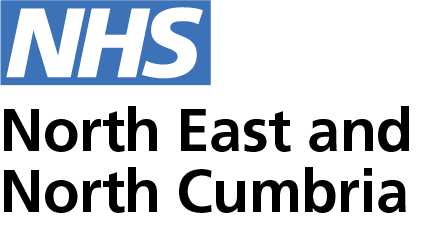ICB kick-starts plans to support communities to live happier and healthier lives

As a new NHS organisation we commit to work with partners to tackle the region’s long standing health inequalities as cost of living rises and communities recover from the pandemic.
On the 1 July, the Integrated Care Board (ICB) for the North East and North Cumbria will become a new organisation and hold its first board meeting.
As well as approving its working arrangements the Board will report on NHS performance across the region and budgets. The ICB will also be considering key plans which will kick-start vital work with local authorities and other partners to tackle health inequalities, involve its communities in shaping health and care and its plans to be the greenest region in England by 2030.
The ICB is part of what’s called an Integrated Care System (ICS) – a way of working that will see the NHS, local authorities and other organisations across the region combining their expertise locally and regionally to plan, deliver and join-up health and care so communities can live happier and healthier lives.
It replaces and has taken on the responsibilities of the eight clinical commissioning groups (CCGs) in the region as well as some of the functions currently held by NHS England for the commissioning of primary care and specialist acute services.
The ICB is one of the largest in the country - with a budget of £6billion, a workforce of 170,000 across health and care and cares for around 2.9million people.
It is responsible for ensuring that high quality and safe health services are accessible to all communities and for promoting joined up health and care, improving health and wellbeing and reducing health inequalities.
Chief executive for the North East and North Cumbria Integrated Care Board, Samantha Allen, said: “While things won’t change overnight and the year ahead will be one of transition for the new organisation – this is an important milestone for our region and enables us to move forward on our journey to deliver our ambitious plans to improve the health of our communities.
“It presents a new momentum for combining our collective resources and expertise so we can make faster progress to tackle key issues we have been grappling with for many years such as the long-standing inequalities and poor health that still exist in the region, as well as doing more to prevent ill-health in the first place.
“Sadly, many of these issues have been exacerbated further by the pandemic and more recently with the cost of living increases which we know will have a greater impact on our most deprived communities.”
An Integrated Care Partnership (ICP) is also being established. This is a committee of the ICB and the 13 local authorities from across the North East and North Cumbria and is responsible for setting key priorities for health and care. It brings together local councils, hospitals, community services, primary care, hospices, and voluntary, community and social enterprise (VCSE) organisations and Healthwatch across the region.
Samantha Allen added: “Improving the health of the region’s communities needs the support of different professionals and services across many organisations – not just the NHS. Which is why partnership working will be critical for us which includes involving, listening and engaging with our communities too.
“Building on a rich history of joint working in the region, we want to do more to break down the barriers that sometimes exist between the different parts of the health and care system so that care can be more joined up.
“We also know that health is also strongly influenced by other factors too; where we live, our lifestyle, education and the employment opportunities available to us. Working together and recognising the wider impact we can make is essential to tackling all of these and enabling our communities to live happier and healthier lives.”
A report to the Board reveals a stark picture of overall health in the North East and North Cumbria despite the region having high quality health and care services – with healthy life expectancy (HLE) way behind the rest of the country. Nine of the 13 local authorities areas in the region have a healthy life expectancy of under 60 years. In the entire south of England, including London, there are only four out of 67 such authorities.*
Chair of the Integrated Care Board, Professor Sir Liam Donaldson, said: “While health and care services in the region are consistently rated as amongst the best in the country, public health remains amongst the worst.
“Huge progress has been made in some key areas such as reductions in the rates of strokes and heart attacks, and falls in the prevalence of smoking and teenage pregnancies but there is much more to do to deliver a long held ambition to ‘not only add years to people’s lives but improve people’s quality of life too’.”
Ambitions being set out by the ICB include:
- Doing more to join-up different services inside and outside of the NHS, so they are provided around the needs of our communities.
- Continuing to raise standards so that all services are high quality and delivered safely and effectively at the right time and in the right place.
- Supporting people so that they don’t need our help in the first place - moving beyond treating illness to preventing ill health.
- Driving forward even more innovations and harnessing the pioneering spirit that already exists in our region.
- Continuing to be the best region in which to work and train. Working together to recruit and retain our staff, ensuring equality for all and supporting our diverse workforce with their physical and mental wellbeing.
- Helping people to live healthier and happier lives by working with partners to influence the many other factors that affect health such as housing, employment opportunities and the environment.
- Giving children in the region the best start in life.
